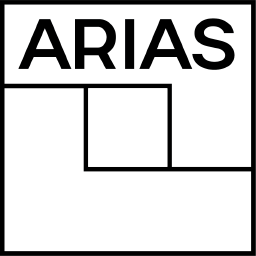“Situated at the meeting point between ecosystems, with a mix of river, ocean, forest, soil, sand, and sunlight at this edge of all edges, estuaries can have the highest biodiversity and productivity of any wetland.”
Robin Wall Kimmerer, Braiding Sweetgrass
The estuary is a fertile wet borderland where meandering strands of the river meet the sea, an area of brackish water that allows for different ecosystems to flourish. Knowledge might be thought of as such a landscape, not as a singular system of truth, but like the mix of the ecosystems in the estuary, a gathering of ways of knowing that exist in an enriching relation to each other.
ARIAS works to bring different modalities of knowing in research together, in order to learn and unlearn from that joint ecology. In everything we do, we bring the understanding that research is more about enacting processes of knowing than it is about the accumulation of knowledge.
Through intersecting approaches in science, arts, and social embodied practices, artistic research problematizes the demand for knowledge production by forwarding different ways of knowing and spaces for thinking. Challenging assumptions, stereotypes, political structures, and blind spots become the main thematics and research subjects of our programme.
So far, ‘ways of knowing’ have been reflected upon in different formats and collaborations. Early on ARIAS organized a series of exchanges around archives and archiving titled ‘Artists & Archivists’. In 2019 we hosted a symposium, The Shadow of Knowledge, with Elisa Steinbock, Imara Limon, ro heinrich and others. Pia Jacques and Ashwarya Kumar developed two zines reflecting on how knowledge is understood through different perspectives (see SHELF). In collaboration with the Open Archives project by Het Nieuwe Instituut we hosted two events on the re-use of archives; one on ethical dilemmas - with Simone Zeefuik and Pieter Paul Pothoven - and one on the emotional challenges that arise when engaging with (violent) archival material - with Jessica de Abreu and Mitchel Esajas, founders of the Black Archives. We also worked in support of the DAS Graduate School participatory research project titled Somatic Laboratory - Trans*latinx Memories.
Public Events & Participation
Ways of Knowing events are announced through the ARIAS Calendar, the newsletter, and social media channels, and are open to anyone who is interested in participating. Read more about past events by using the filter WK and search bar on sub themes on our main page.
Artists and researchers who want to engage in further exchange are welcome to join both the group and our shared research activities.
[un]learning scripts unfolded by inviting respondents into dialogue and exchange. In collaboration with Amir Baroud, we reached out to our extended network and related communities gathering diverse understandings of knowledge as it is experienced in art and research contexts. It resulted in a series of gatherings in which participants brought forward their practices and modalities of knowing (e.g. storytelling, touch, emotion, rehearsal, imagery) with regards to challenging the possibly limiting, violent, dominant underlying scripts of modernity, and offering alternative modes of being; like those of an estuary.
Participants are, among others, Monica Baptiste Gouffray, Amir Baroud, Erica Biolchini, Dorin Budusan, Sonia de Jager, Laura Dubourjal, Mariana Fernández Mora, ro Heinrich, Janne Igbuwe, Kiek Korevaar, Yee Ting Lau, Mei Liu, Haitian Ma, Nduka Mntambo, Yen Noh, Nienke Scholts, Rita Sousa Mendes, and Alessandra Tom.
The sessions are for and with participants, and open to connected/relevant networks for the specific thematics explored. We focus on the needs of the presenters in how the space is organized and who is invited.
Past Events
[un]learning through storytelling
[un]learning through touch and not-knowing
[un]learning through archives
[un]learning media scripts
[un]learning through rehearsal
[un]learning through illness
weaving stories | a series
weaving stories is a series in which an artist-researcher offers an engaging proposition unfolding over several practice sharing sessions together with participants; all are welcome to join. In these critical times when the scope of exchanges is consistently reduced, we would like to offer spaces for an ecology of practices, where different perspectives and ways of knowing may be engaged relationally towards difference without separability.
From the experience of our shared encounters within [un]learning scripts – which were interesting, nourishing and fruitfully disorienting at times, while also always leaving us with the desire to unpack more – the idea rose to create space for a series within one line of exploration, in order to be able to deepen our mutual exchanges around specific modalities and practices of knowing.
In 2025 we will therefore begin the series weaving stories, starting with a collaboration with ro heinrich in collaboration with Reschooling With and Framer Framed.
See our Calendar for the events in this new series.










